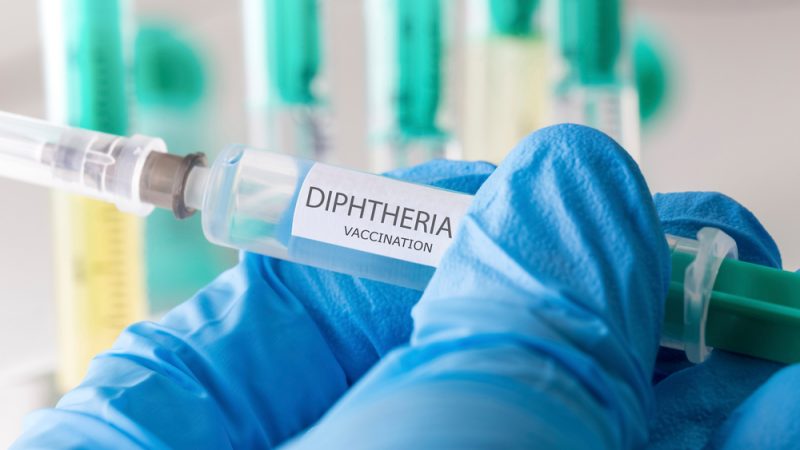By Iyemah David
The World Health Organisation (WHO) on Monday in Abuja said that it would deliver 1,800 vials of Diphtheria Antitoxin (DAT) on August 2 as the country battles diphtheria outbreak.
The antitoxin is administered to patients who have been diagnosed with diphtheria to neutralise the toxins produced by the bacteria and prevent further damage to the body.
Dr Walter Mulombo, Head of Mission and Representative, WHO, Country Representative Office in Nigeria, said this at a news conference on Diphtheria Outbreak Response.
The event was jointly organised by WHO and organised by the National Primary Healthcare Development Agency (NPHCDA).
DAT is a medication used to treat diphtheria, a bacterial infection that can cause severe respiratory distress and other complications.
According to Mulombo, Nigeria Centre for Disease Control and Prevention (NCDC) requested WHO to procure DAT and Erythromycin Intravenous (IV) for the case management of diphtheria cases.
Erythromycin works by inhibiting the growth of bacteria, thereby helping the body’s immune system to fight off infection.
“1800 vials of DAT are expected to arrive in the country on August 2 and erythromycin in 1-2 weeks, pending government authorisation.
“These health commodities are essential for saving lives and reducing the sequelae in the affected patients, thus need to be prepositioned in the country and ready to be deployed to the states in need,” he said.
He said that recently the NCDC requested support from WHO for the deployment of 18 rapid response teams to support the Bauchi, Kaduna and Katsina states.
“The deployment process is underway following the requested profile. A mix of the workforce from the Nigeria Field Epidemiology and Laboratory Training Programme (NFELTP), and WHO staff will be used,” Mulombo said.
He said that the WHO team was on ground in Yobe and Kano states to improve surveillance at the health facility and community levels.
According to him, the team will be supporting the active case search and the decentralised isolation centres as well as referral to the state reference treatment centres.
He said that WHO was supporting the Federal Capital Territory (FCT) in conducting an integrated Active Case Search and Household Sensitisation.
This, he said was meant to optimise the opportunity for the fractional inactivated polio and for non-bivalent Oral Polio Vaccine type 2 routine immunisation intensification campaign.
Mulombo said that WHO was also supporting the procurement of laboratory commodities to increase the result turnaround time, to support the case definition and management at an early stage.
He added that WHO was working with NPHCDA to organise the first phase of vaccination campaign targeting children from 0 to 14 years in four states, with a support of N92 million.
The UNICEF Chief of Health in Nigeria, Dr Eduardo Celades, said it was unfortunate that the country was home to the second largest number of zero-dose children in the world.
Celades said that so far, the country has been able to reach about 150,000 children while stressing that more needed to be done.
He said that the COVID-19 pandemic has fuelled a recurrence of diphtheria in the country.




